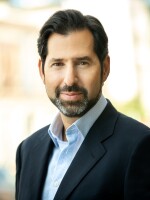STEVE INSKEEP, host:
Now the investigation of an alleged leak of classified information at the White House is getting broader and the story is growing more confusing. Special prosecutor Patrick Fitzgerald has spent almost two years now investigating allegations that government officials broke the law in disclosing the identity of an undercover CIA agent, Valerie Plame. Yesterday, The New York Times published articles about the role of its reporter, Judith Miller, in the case. NPR media correspondent David Folkenflik joins us to explore the key questions left unanswered. Good morning, David.
DAVID FOLKENFLIK reporting:
Good morning.
INSKEEP: I have to tell you, I read the article about Judith Miller in The New York Times over the weekend and ended up more confused, not less.
FOLKENFLIK: Well, you're not alone. You know, there were a lot of questions left unanswered by The New York Times in this. There are a lot of questions outstanding. You know, among them, it seems to me, is the key question. Judith Miller went to jail for 85 days to protect a single confidential source and she now says there's a second source. She got an agreement to testify with the special prosecutor, Patrick Fitzgerald, about her source, who turns out to be the vice president's chief of staff, Lewis Libby. She spoke with Lewis Libby in the summer of '03. You remember that about that time, former Ambassador Joseph Wilson came out and blasted the Bush administration, saying that it overstated the case for the invasion of Iraq. A few days later, a Bob Novak column disclosed the name of Mr. Wilson's wife, undercover CIA agent Valerie Plame. A special prosecutor was trying to figure out if a crime was committed in that time. Miller acknowledged, after reaching an agreement with her source, that her source was Lewis Libby. But after she testified, she said she found another notebook in which she had original notations, a misspelling of Ms. Plame's name, and she said it seems to her that actually a second source told her about Ms. Plame the first time around.
INSKEEP: And the second source was?
FOLKENFLIK: She doesn't remember. It's a rather incredible thing for a reporter to admit.
INSKEEP: So what does that mean for Lewis Libby, the vice president's chief of staff, the guy who seemed to be in the crosshairs of her testimony until she added to it or clarified it?
FOLKENFLIK: That's right. Miller's account in yesterday's Times would seem to put him at the center of an effort to discredit Mr. Wilson through talking to Plame. In fact, the first time that Miller testified she spoke with Wilson was actually almost two weeks before Wilson went public with his criticism of the White House. There's some question about whether his actions would nonetheless prove criminal. There are still questions about what it is precisely he could have violated. It could've been a couple of different things, including the question of espionage acts, the question of the handling of classified material, the question of whether his testimony, which we don't know, conflicted in any way with Ms. Miller's testimony.
INSKEEP: Well, if the vice president's chief of staff wasn't the person who told Judith Miller the specific name, isn't he off the hook? He could still be in trouble?
FOLKENFLIK: Not necessarily. It seems as though the special prosecutor is exploring the possibility that one or more government officials may have been involved in a number of different kinds of criminal violations. It could be, of course, that it's one of these related ancillary crimes--that is, obstruction of justice or perjury in terms of handling the response, the investigation itself.
INSKEEP: This raises questions, I suppose, about the whole dance of giving permission to Judith Miller, getting permission from her source to testify, what she ultimately said and that sort of thing.
FOLKENFLIK: Well, that's right. The president ordered all White House staffers to sign a waiver saying that all reporters were released from their obligations to keep confidentiality promises in this case. Mr. Libby signed it, his lawyer a year ago affirmed to her lawyers that he meant it. A year ago, however, according to Floyd Abrams, one of her attorneys, Mr. Libby's lawyer said, `Yeah, you know, this actually kind of coerced.' So Miller's legal team pulled back. More recently they reached out to see whether or not Mr. Libby meant it when he said he had waived it. He said he did in a telephone call and a letter. And in the letter, he said, `Look, not only do I want you to testify, other reporters have essentially exonerated me.' Miller interpreted that in some ways as trying either to discourage her from testifying at all or to influence her to testify in a way that she didn't think matched the truth.
INSKEEP: OK. And, David, just very briefly, how much bigger is this investigation than just the revelation of a single name?
FOLKENFLIK: Well, it seems to, you know, sort of pierce both the workings of the nation's perhaps leading newspaper and also the inner circle of the White House. You know, let's remember that Karl Rove has testified four times before this ground jury. He seems to be still in the crosshairs. And the special prosecutor seemed very interested in the activities of the vice president himself.
INSKEEP: David, thanks very much.
FOLKENFLIK: Good to join you.
INSKEEP: That's NPR media correspondent David Folkenflik with us this morning. And you're listening to MORNING EDITION from NPR News. Transcript provided by NPR, Copyright NPR.







